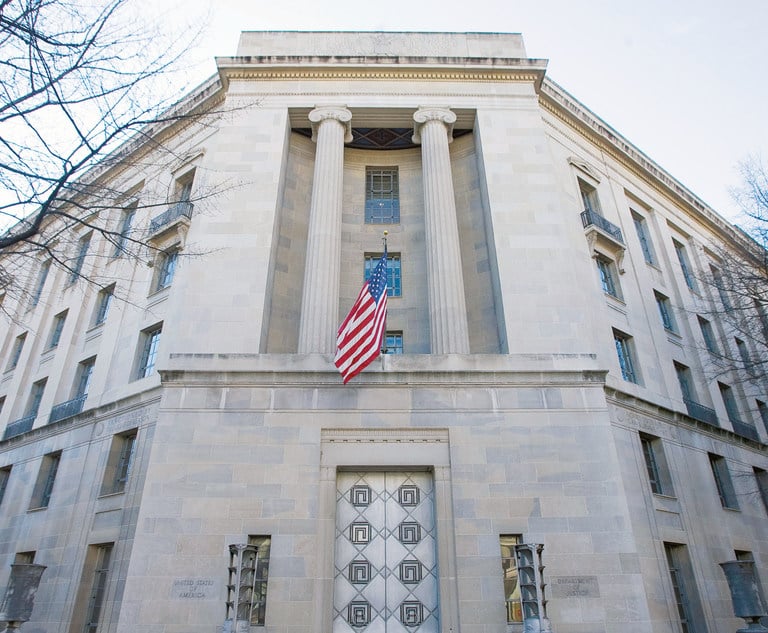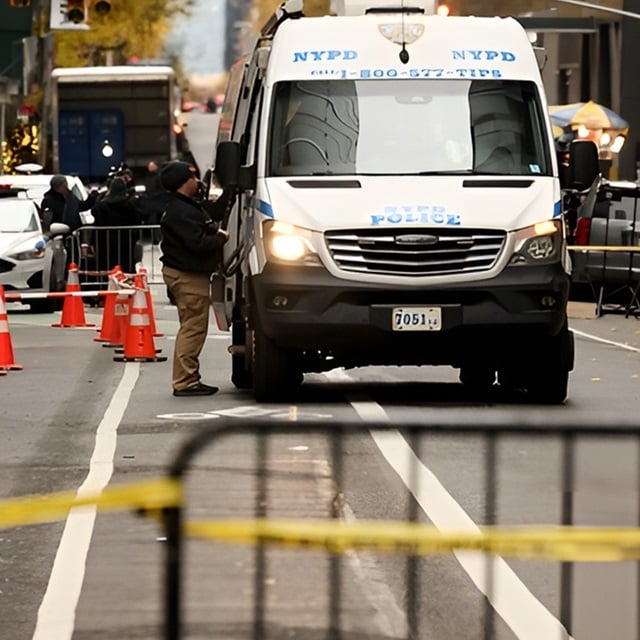Susan Fowler, Uber's Thorn, Shares Her Story With the Supreme Court
Former engineer, who publicly exposed hostile work claims, challenges company's class action waivers.Susan Fowler, the former Uber engineer who exposed…
August 23, 2017 at 11:24 PM
6 minute read
The original version of this story was published on Law.com
Former engineer, who publicly exposed hostile work claims, challenges company's class action waivers.
Susan Fowler, the former Uber engineer who exposed in a blog post her claims of a hostile work environment, tells the U.S. Supreme Court in a key workplace challenge that class action waivers in arbitration agreements unfairly allow companies to eliminate legal risks associated with systemic, illegal employment practices.
Fowler, represented by Christopher Baker of San Francisco's Baker Curtis & Schwartz, filed an amicus brief in a trio of high court cases asking the justices whether class and collective action bans in workplace arbitration agreements violate federal labor laws.
In February, Fowler, who now works for the mobile payment company Stripe Inc., published a blog post—“Reflecting On One Very, Very Strange Year At Uber”—that revealed her efforts to address with Uber management her claims about sexual harassment, discrimination and retaliation that she and other female engineers experienced at the ride-hailing company.
Fowler's blog post prompted Uber Technologies Inc. to hire former U.S. Attorney General Eric Holder Jr. and his firm, Covington & Burling, to conduct an investigation into the corporate culture at Uber. The firm in June issued a series of recommendations about how the company could move forward and repair its reputation. Uber also hired the law firm Perkins Coie to investigate employment-related complaints and that reportedly led to at least 20 terminations. Uber CEO Travis Kalanick, facing a reported shareholder revolt as scandals mounted, resigned in June.
“Uber required Ms. Fowler to sign a class action waiver as a condition of employment,” Baker wrote in the Supreme Court brief. “Uber makes all its workers sign these waivers. These waivers are now ubiquitous in the high-tech industry and 'gig economy,' where the likelihood of unionization is remote.”
Those waivers, Baker said, take from workers the concerted activity in which they are most likely to engage: collective litigation to improve their working conditions. Much of the modern workforce, he said, cannot engage in the traditional concerted activities of strikes and picketing. Uber drivers are fighting arbitration agreements in a pending case in the U.S. Court of Appeals for the Ninth Circuit.
Baker was not immediately reached for comment Wednesday.
Fowler's brief notes Uber's long clash with employees over labor matters. “These allegations include stealing driver tips, failing to pay minimum wage and overtime, lying to employees about their equity compensation, electronically spying on drivers who work for a competitor, and the list goes on,” Baker wrote. “Uber's typical response to this litigation is to say that workers cannot engage or participate in the concerted activity of collective litigation. For Uber, even 1,000 very expensive individual arbitrations is exponentially cheaper than a single class action judgment.”
Baker notes that Facebook and Google, among other companies, also require employees to agree to arbitration through a class action waiver.
Uber figures in another amicus brief filed in the Supreme Court's consolidated cases, which will be argued Oct. 2.
The New York Taxi Workers Alliance, represented by Jeanne Mirer of New York's Mirer Mazzocchi Julien & Chickedantz, contends Uber “hides behind” class action waivers in its arbitration agreements to prevent its drivers from challenging their alleged “misclassification” by the company as independent contractors rather than employees.
The Supreme Court cases ask the justices whether the class or collective action bans violate the National Labor Relations Act or whether they are enforceable under the Federal Arbitration Act. The consolidated cases are: National Labor Relations Board v. Murphy Oil USA (from the U.S. Court of Appeals for the Fifth Circuit); Epic Systems v. Lewis (Seventh Circuit), and Ernst & Young v. Morris(Ninth Circuit).
Hogan Lovells partner Neal Katyal represents Murphy Oil Corp. and Epic Systems Corp., and Williams & Connolly's Kannon Shanmugam is counsel to Ernst & Young. NLRB general counsel Richard Griffin has requested argument time.
Dozens of major companies, such as AT&T Mobility, Samsung, GameStop Corp. and Neiman Marcus, are awaiting a decision on the issue, which has divided the lower courts. The companies have attracted major law firms to represent them, including Mayer Brown; Morgan, Lewis & Bockius; Holland & Knight; and Squire Patton Boggs.
In the high court, an array of business organizations are supporting the Trump administration's position—a change from the Obama administration's stance—that the waivers are enforceable. These groups are represented by veteran Supreme Court advocates, including Jones Day's Beth Heifetz for The Employer Group; Goodwin Procter's William Jay for the Business Roundtable; Mayer Brown's Andrew Pincus for the U.S. Chamber of Commerce; Jenner & Block's Adam Unikowsky for the Retail Litigation Center; and the Washington Legal Foundation's Richard Samp.
Supporting the National Labor Relations Board and the employees in the high court trio of cases are civil and consumer rights organizations, including the NAACP Legal Defense and Educational Fund Inc. and Public Citizen, as well as 16 states and the District of Columbia, labor law professors, the American Association for Justice, 10 international labor unions, the National Academy of Arbitrators, Main Street Alliance and the Constitutional Accountability Center.
Covington Report Tells Uber to Fix Workplace Practices as Kalanick Steps Aside
The Consequences of Failing to Respond to Harassment Allegations
Flip a Coin? Lawyers Maneuver in Key Labor Case at Supreme Court
Trump's DOJ Switches Sides in Key Labor Case, Now Fights Class Actions
Inside Perkins Coie's Uber Investigation That Led to 20 Terminations
Uber In-House Counsel Under Scrutiny in Alleged Harassment of Female Engineer
Marcia Coyle, based in Washington, covers the U.S. Supreme Court. Contact her at [email protected]. On Twitter: @MarciaCoyle.
This content has been archived. It is available through our partners, LexisNexis® and Bloomberg Law.
To view this content, please continue to their sites.
Not a Lexis Subscriber?
Subscribe Now
Not a Bloomberg Law Subscriber?
Subscribe Now
NOT FOR REPRINT
© 2025 ALM Global, LLC, All Rights Reserved. Request academic re-use from www.copyright.com. All other uses, submit a request to [email protected]. For more information visit Asset & Logo Licensing.
You Might Like
View All


Inside Track: Cooley's Modest Proposal to Make Executives Safer

Trending Stories
- 1We Must Uphold the Rights of Immigrant Students
- 2Orrick Picks Up 13-Lawyer Tech, VC Group From Gunderson Dettmer
- 3How Alzheimer’s and Other Cognitive Diseases Affect Guardianship, POAs and Estate Planning
- 4How Lower Courts Are Interpreting Justices' Decision in 'Muldrow v. City of St. Louis'
- 5Phantom Income/Retained Earnings and the Potential for Inflated Support
Who Got The Work
J. Brugh Lower of Gibbons has entered an appearance for industrial equipment supplier Devco Corporation in a pending trademark infringement lawsuit. The suit, accusing the defendant of selling knock-off Graco products, was filed Dec. 18 in New Jersey District Court by Rivkin Radler on behalf of Graco Inc. and Graco Minnesota. The case, assigned to U.S. District Judge Zahid N. Quraishi, is 3:24-cv-11294, Graco Inc. et al v. Devco Corporation.
Who Got The Work
Rebecca Maller-Stein and Kent A. Yalowitz of Arnold & Porter Kaye Scholer have entered their appearances for Hanaco Venture Capital and its executives, Lior Prosor and David Frankel, in a pending securities lawsuit. The action, filed on Dec. 24 in New York Southern District Court by Zell, Aron & Co. on behalf of Goldeneye Advisors, accuses the defendants of negligently and fraudulently managing the plaintiff's $1 million investment. The case, assigned to U.S. District Judge Vernon S. Broderick, is 1:24-cv-09918, Goldeneye Advisors, LLC v. Hanaco Venture Capital, Ltd. et al.
Who Got The Work
Attorneys from A&O Shearman has stepped in as defense counsel for Toronto-Dominion Bank and other defendants in a pending securities class action. The suit, filed Dec. 11 in New York Southern District Court by Bleichmar Fonti & Auld, accuses the defendants of concealing the bank's 'pervasive' deficiencies in regards to its compliance with the Bank Secrecy Act and the quality of its anti-money laundering controls. The case, assigned to U.S. District Judge Arun Subramanian, is 1:24-cv-09445, Gonzalez v. The Toronto-Dominion Bank et al.
Who Got The Work
Crown Castle International, a Pennsylvania company providing shared communications infrastructure, has turned to Luke D. Wolf of Gordon Rees Scully Mansukhani to fend off a pending breach-of-contract lawsuit. The court action, filed Nov. 25 in Michigan Eastern District Court by Hooper Hathaway PC on behalf of The Town Residences LLC, accuses Crown Castle of failing to transfer approximately $30,000 in utility payments from T-Mobile in breach of a roof-top lease and assignment agreement. The case, assigned to U.S. District Judge Susan K. Declercq, is 2:24-cv-13131, The Town Residences LLC v. T-Mobile US, Inc. et al.
Who Got The Work
Wilfred P. Coronato and Daniel M. Schwartz of McCarter & English have stepped in as defense counsel to Electrolux Home Products Inc. in a pending product liability lawsuit. The court action, filed Nov. 26 in New York Eastern District Court by Poulos Lopiccolo PC and Nagel Rice LLP on behalf of David Stern, alleges that the defendant's refrigerators’ drawers and shelving repeatedly break and fall apart within months after purchase. The case, assigned to U.S. District Judge Joan M. Azrack, is 2:24-cv-08204, Stern v. Electrolux Home Products, Inc.
Featured Firms
Law Offices of Gary Martin Hays & Associates, P.C.
(470) 294-1674
Law Offices of Mark E. Salomone
(857) 444-6468
Smith & Hassler
(713) 739-1250






